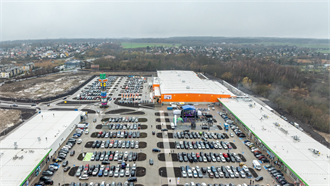A new report from Dutch pensions investor Bouwinvest sheds light on the impact Covid-19 is likely to have on the investing landscape of the Netherlands.
The study predicts the co-working segment of the office asset class is vulnerable to being hit hard because it runs on short-term leases, which tenants can terminate quickly.
Elsewhere in the office class, there could be some protection thanks to longer lease structures and the running down of surplus stock that has occurred in the last few years, according to the report.
The report says: ‘While the overall impact of an economic slowdown on the Dutch office market is likely to be limited to a temporary fall in demand, this could have a stabilising effect on rents after the significant increases of recent years. The repercussions of any recession are likely be less than during the global financial crisis of 2007-08 when the market was characterised by high levels of over-supply.’
Meanwhile, the long-term prognosis for the logistics sector is favourable. Bouwinvest predicts severe disruption in supply chains in the short term, but that any losses should be wiped out by e-commerce growth, echoing predictions by Prologis.
Another at-risk asset class at this time is - predictably - retail, with some Dutch firms on life-support and reliant upon state subsidy as a result of ‘lockdown’ measures, restricting people’s’ movement and gatherings which the government, like others across the continent, has rolled out in an effort to reduce the number of coronavirus cases.
So far more than 2,000 stores have closed their doors in the Netherlands, the report states. Since the onset of the coronavirus crisis, footfall in the main central shopping streets of the largest Dutch cities has fallen by around 45% to 65%. Local neighbourhood shopping centres, in contrast, have seen an increased footfall, particularly for supermarkets and some other specific sectors, where sales have jumped.
Residential and hotels
Bouwinvest predicts the Dutch residential market will be relatively resilient in the event of an economic recession, due to the structural shortfall in supply estimated at around 300,000 homes. But Bouwinvest expects development projects to be delayed as foreign workers return home and disruptions arise in the supply of construction materials.
In the hotels sector, the study predicts further consolidation when European markets emerge from the crisis, with hotel occupancy rates collapsing to unprecedentedly low levels and many operators shutting their doors. At sharp risk are operators with low levels of capital reserves and assets in several EU countries, it states.
Elsewhere, healthcare real estate should benefit from long-term, intrinsic demand driving by demographic factors such as an ageing population, says the report.
Marleen Bosma, Bouwinvest’s head of research & strategic advisory, said: ‘The coming economic fallout from the coronavirus pandemic is going to hit all areas of the Dutch real estate investment market, but those sectors where consumers and businesses can quickly choose to cut spending, such as non-staple retail, hotels and restaurants and the relatively small co-working office niche, will probably be most affected.
Sectors like residential and healthcare should be more resilient because of the underlying strong demand trends and mismatch with supply that have been evident for many years, but there are risks here too. General offices could receive some protection from longer lease structures and the running down of surplus stock that has occurred in the last few years.
‘Logistics real estate lies somewhere in between these two poles for now, with the severe disruption in supply chains in the short term being more than compensated by the robust ongoing growth in e-commerce.’


































